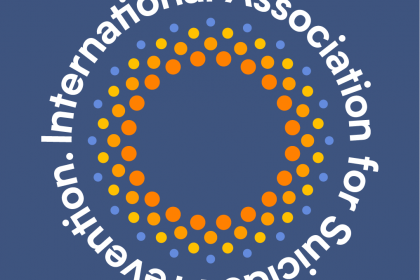As part of global efforts to address mental health and suicide prevention, the World Health Organization (WHO) has launched a comprehensive policy brief on the decriminalisation of suicide and suicide attempts. The brief recognises the importance of decriminalising suicide and emphasises that individuals facing mental health challenges should be offered support instead of punitive measures. IASP welcomes this launch and supports the decriminalisation of suicide and suicidal behaviour globally.
Suicide is a global public health concern, claiming more than 700,000 lives each year (World Health Organization, 2023). While mental health issues play a significant role in suicide, societal factors also contribute, including the criminalisation of suicide. Criminalising suicide not only stigmatises individuals struggling with mental health challenges but also creates barriers to seeking help. Those facing suicidal thoughts often fear legal consequences, which can prevent them from reaching out to friends, family, or mental health professionals. This is a human rights violation. It is impossible to achieve universal health coverage when vulnerable individuals are punished instead of being provided with the help they need. By decriminalising suicide, nations can send a powerful message that mental health matters, and seeking help is an act of courage, not a crime.
The WHO’s policy brief acknowledges that decriminalisation is not a standalone solution to the complex issue of suicide prevention. Still, it is a crucial component of a holistic approach that recognises mental health as an essential aspect of overall well-being. Decriminalisation can lead to significant positive outcomes, such as removing barriers to help-seeking, reducing stigma, increasing opportunities to raise awareness, and promoting suicide prevention. When individuals are no longer afraid of legal repercussions, they are more likely to seek help for their mental health issues. This can lead to earlier interventions and more effective treatment, ultimately saving lives. It also encourages open conversations about these issues, fostering a more compassionate and understanding society.
IASP released its policy position statement and supporting background document in 2020 advocating decriminalisation. It encouraged countries where suicide attempts are illegal or punishable to develop and implement legislation that decriminalises suicide attempts. In addition, the statement emphasised that decriminalisation would not contribute to an increase in suicidal behaviour; it could seem like an increase due to the ease and acceptance of reporting. It is important to note that decriminalisation is best supported by the development and implementation of national suicide prevention strategies, as part of comprehensive suicide prevention efforts.
As nations around the world grapple with the mental health challenges exacerbated by the COVID-19 pandemic, the WHO’s policy brief on decriminalisation is a timely and significant resource. It provides guidance to governments, policymakers, and community leaders in implementing measures to decriminalise suicide while strengthening mental health support systems. Advocating for a multi-sectoral approach, the policy brief reinforces the idea that every life is worth saving and that mental health should be a global priority. As nations decriminalise suicide, we take a crucial step towards a world where stigma is replaced with support and where individuals can find the help that they need to overcome their mental health challenges.
WHO Policy Brief on the health aspects of decriminalization of suicide and suicide attempts





